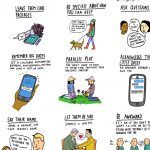How to help a grieving friend
‘There’s a catch-22 in grief support: because we don’t talk about the realities of grief in our culture, no one really knows how to help.’
Megan Devine author of Refuge In Grief says this is true for friends and family members and for the pros. The people who can best tell us how to help — grieving people themselves — don’t have the energy, interest, or capacity to teach anyone how to be supportive.So we’re stuck: friends and family want to help, grieving people want to feel supported, but no one gets what they want.
Megan says ‘If we’re going to get better at supporting each other, if we’re going to get what we all want—to love and be loved—we need to talk about what isn’t working, and we need to talk about what really helps.’
If you’re like most people, you’re never sure what to do or say when faced with someone’s pain. I cringe now, looking back on so many encounters where I thought it best to say nothing, I felt awkward, or thought it better not to remind them of what had happened (haha like you ever forget). So I kept silent. And if you are reading now – I apologise to you for that. I didn’t know any better and now that I do – perhaps that is why I am called to spread the word so far and wide.
So what does help?
I think the single biggest thing is to say the name of the person that has died. Ask their name if you don’t know it or invite a conversation about them and a memory you may have. The worst thing that can happen is that they shut the conversation down. And if they do – know that is OK too. Grief is a tricky thing, sometimes we don’t want to talk about it, but most of the time we will be grateful that you asked or shared a story.
What else can you do?
- Leave them care packages – tasty treats, nice hand creams, candles, sweets, plants, a book, flowers, nice coffee or tea, a face mask!
- Ask specific questions – can I take your rubbish out, can I cook lasagna for you (yes please), how are you feeling TODAY,
- Remember big dates. When you forget them we think you have forgotten our lost one too. (I am hopeless with dates so I make sure I broadcast important ones to me but not everyone is like that). Also remember little dates. The monthly dates can be sad too.
- Just hang out. You don’t always need to be talking. My friend used to drive me around the streets of Melbourne and we would look at houses, at trees, homewares stores, anything really. We didn’t always talk but it helped immensely.
- Accept that it is awkward. Accept they will cry and just let it be what it is.
The info graphic is from refugeingrief.com

